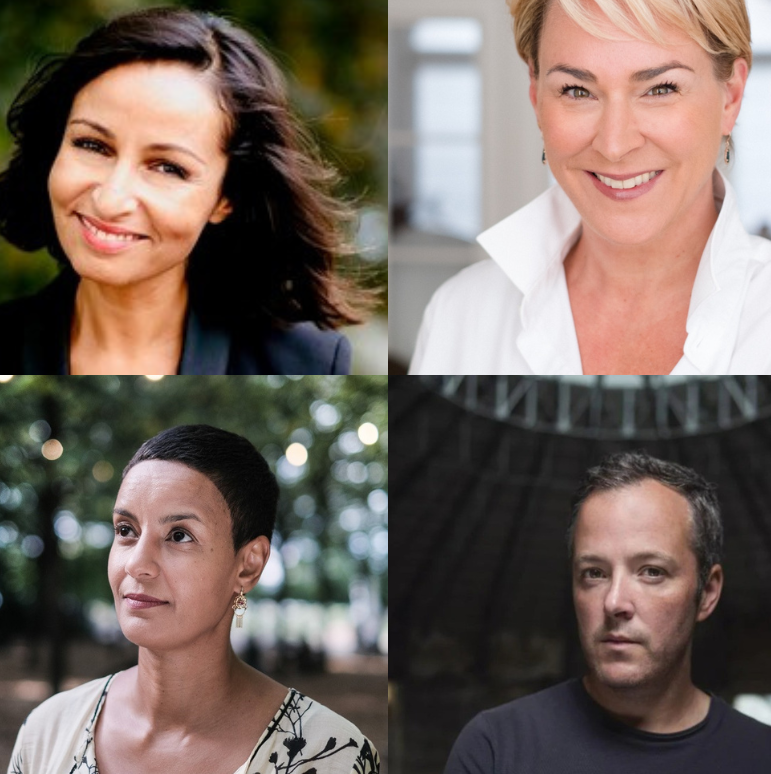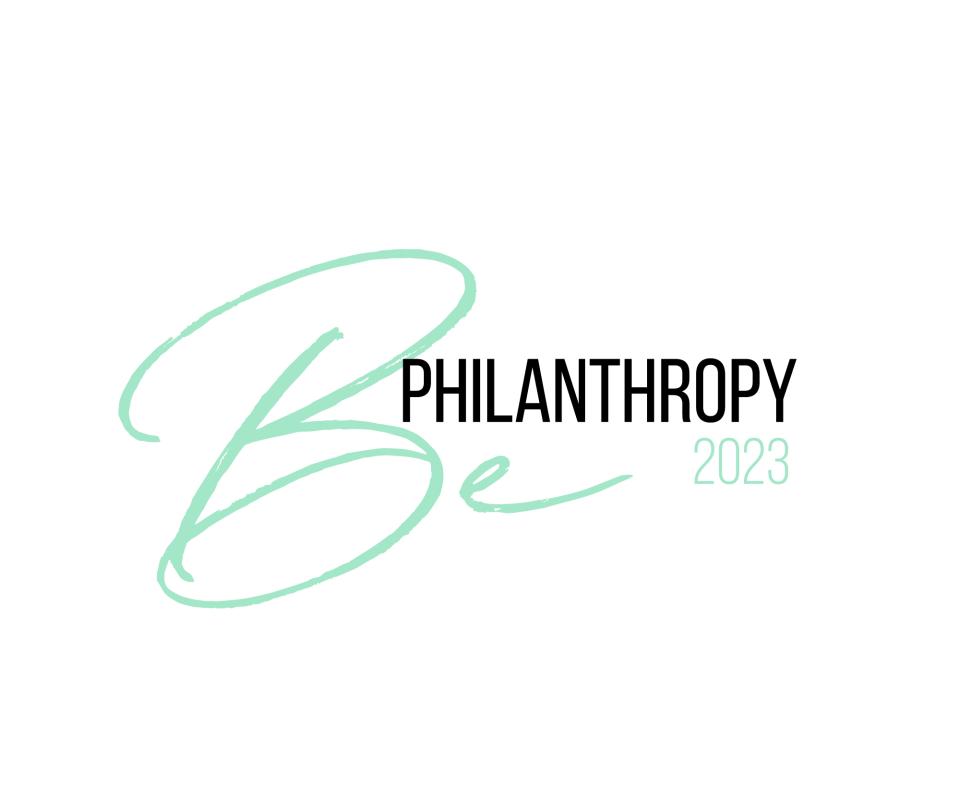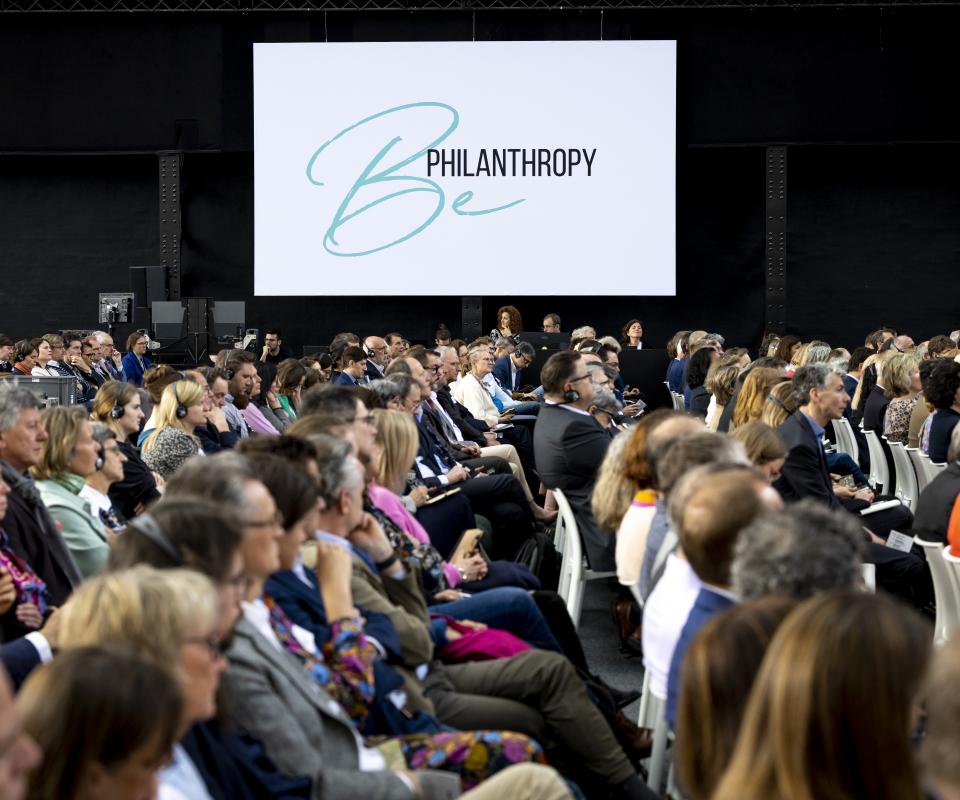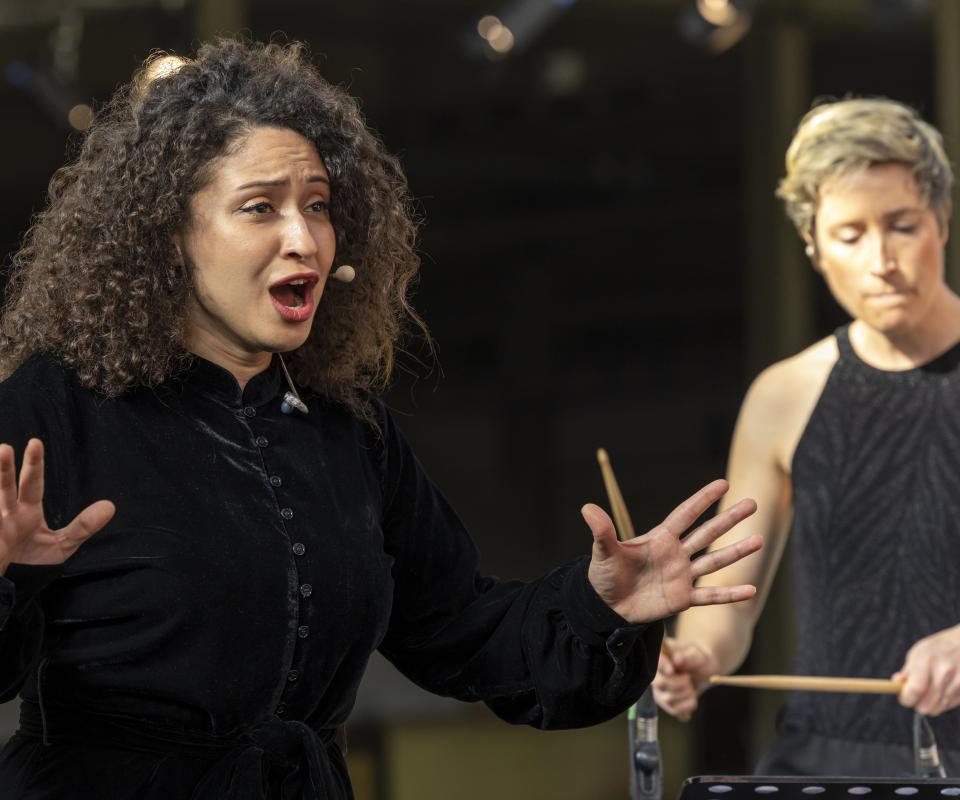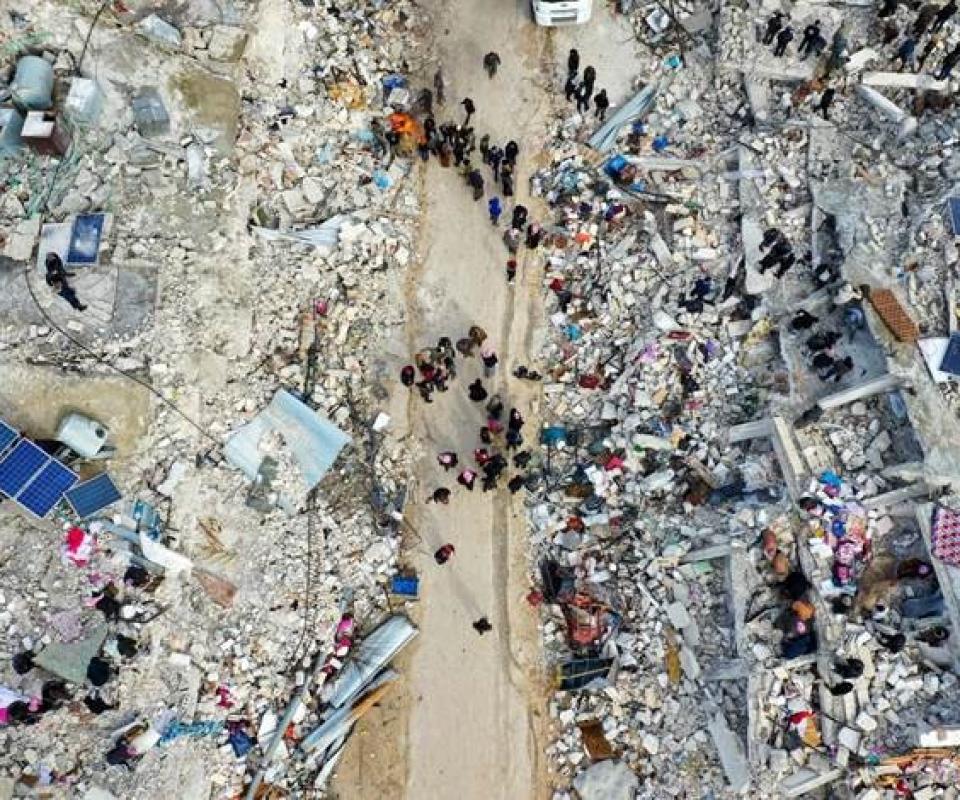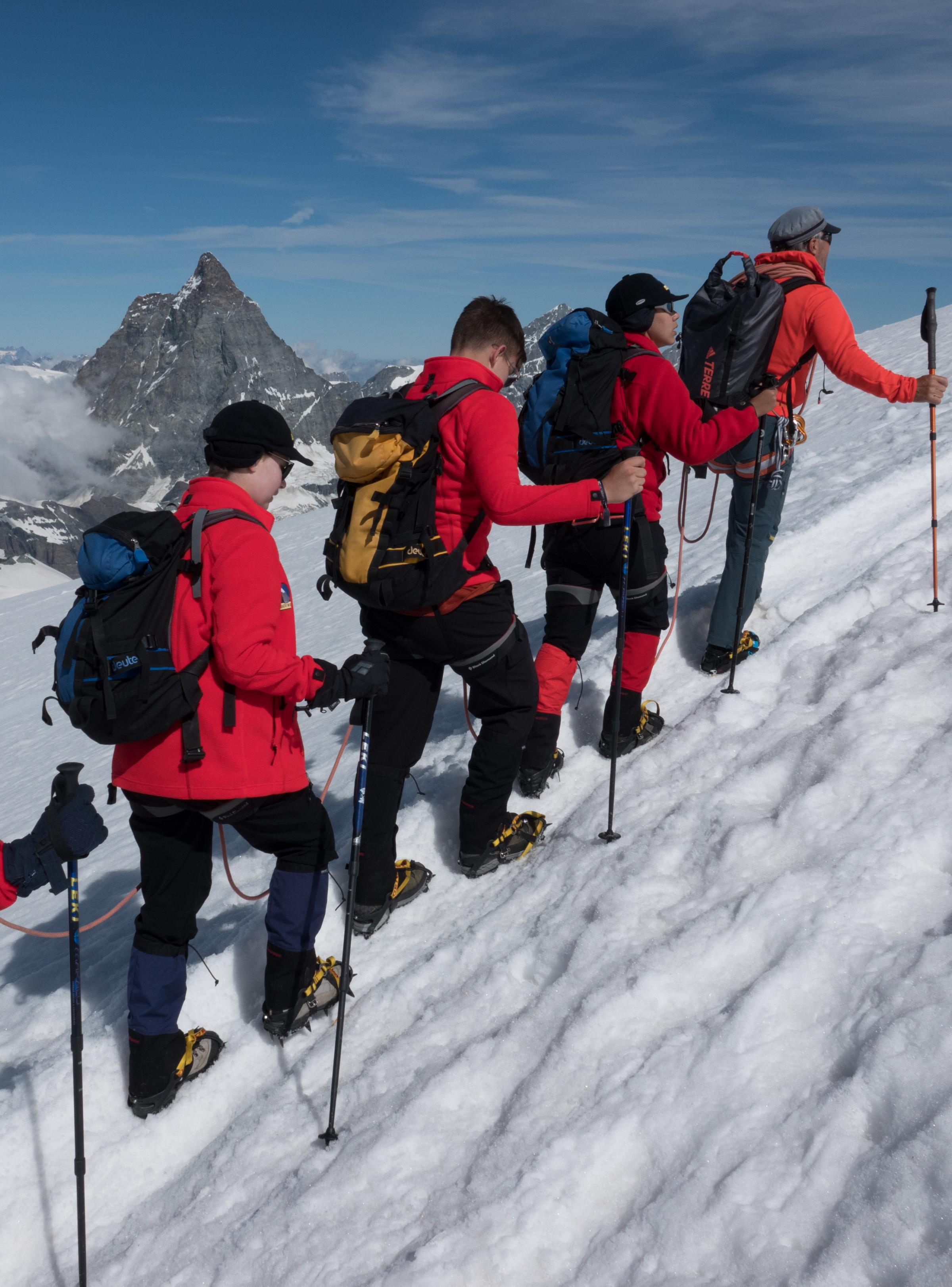
A mountain climb to regain self-confidence
Providing youngsters suffering from cancer with the opportunity to have a brand-new experience in the mountains: this is what the À chacun son Cervin Fund, managed by the King Baudouin Foundation, has been offering, every year, for the past 20 years. The idea behind this came from someone who is passionate about mountaineering and has a big heart, someone who wanted to share his passion with young people and support them during their recovery.
Discover yourself, go beyond your limits, conquer your fears, have confidence in others. And together achieve your aim. Such is the philosophy that guides annual climbs organised by the À chacun son Cervin Fund. The objective is for a group of youngsters who have had cancer and are in treatment or remission to climb the Breithorn, in the Alps of the Valais in Switzerland. “An extraordinary experience” says Jérôme Duikers, who took part in the climb in 2015. “I knew nothing about mountaineering, but I loved discovering this universe, the great outdoors and hiking.”
Slowly, but surely and decisively
The idea grew in Philippe Stroobant’s mind in 1997. “Mountains have always been a passion for me” he says, smiling. “It’s an amazing place to recharge your batteries and for healing.” Immersed in significant professional responsibilities, one day he decided to slow down. Without children of his own, Philippe Stroobant decided to help other young people. One day, he met Professor Cornu, Head of the Paediatric Haematology-Oncology department at the Saint Luc University Hospital in Brussels. It was a decisive meeting, after which he decided to create a project to support youngsters aged 15 to 20 being treated in the department. “There were no activities available for young people in that age group, so I wanted to do something for them. My dream was to give them what I would have loved to give my own children, the children I never had” he explained.
To give form to his wish, he created the À Chacun son Cervin Fund, under the auspices of the King Baudouin Foundation and every year, he organizes an expedition for a group of 8 to 9 youngsters. “We leave for Zermatt for 15 days and there we just live the mountain experience. The youngsters (aged 15 to 20, but sometimes a bit older, aged 20 to 30) discover mountaineering and take their first steps on a glacier at 4,000 metres’ altitude. We are careful to propose a climb that suits their capabilities and which stimulates their desire to ‘reasonably’ surpass themselves. And in return, we ask two things of them: to be generous in their effort and in a good mood!” So it’s at a slow, sure and decisive pace that the youngsters set off on their adventure. “Slowly, because for a lot of youngsters it’s difficult to slow down. Surely, because you have to be careful where you put your feet in the mountains. And keeping the pace, because when you have decided in your head to do something, you can do it. Beyond the mountains, this is an apprenticeship for life” adds Philippe Stroobant, who takes care to transmit this leitmotif to the roughly 180 youngsters who have had the opportunity to take part in the 20 climbs already organized.
A victory over yourself
In the high mountains, you don’t improvise, especially with people with health problems. The youngsters are therefore supported by a whole team of people: mountain guides, doctors and physiotherapists, professionals who are reassuring, good listeners, willing to adapt the programme, and who lavish care and advice. Doctor Isabelle De Bock has taken part in two climbs: “The role of the doctors is to make sure that the programme proposed by the guides is feasible for the young people. We know the file of each patient and we are in contact with the hospital oncologist. If there is the smallest problem, if we see that the body is weakening, we intervene.”
And it is well worth the effort. “Initially, the youngsters don’t believe in the project too much. They feel weak. But then, they gradually become aware of their capabilities and discover that their body is actually capable of quite a lot. Finally, they accomplish a real exploit together, by digging deeper in their own resources” continues Isabelle De Bock. “They often tell us that they have managed to accomplish something that even healthy youngsters of their age don’t do. For them, it’s a way of turning the page after their illness” Philippe Stroobant analyses.
Jérôme Duikers tells us: “Going up the Breithorn was really intense. Physically, it was OK, but when I was there, I discovered I suffered from vertigo. It was a limitation I just had to deal with. The fact of being supported by the group helped me enormously. Together and step by step, we got there. This experience taught me that nothing is impossible. More than the challenge, it’s how you approach it that’s important and it’s what enables you to achieve something. It’s something that I keep in mind and apply every day.”
“It’s fantastic to see in the eyes of these young people all the satisfaction and pride in achieving their objective when we get to the top of the mountain", adds Philippe Stroobant. "It’s not just a victory over the mountain, it’s a victory over themselves and it’s a shared victory.” The spirit of being roped together really means something here: “The spirit of a climb is doing something together. These young people have the possibility of developing in a group where each one has his or her rightful place. It’s so important to feel this dynamic and this spirit of teamwork.”
"For a young person, being able to say 'I can do that' is a great support for the future.”
Moreover, it’s a dynamic that you can feel from the very start – “Very quickly, even though they don’t know each other, the youngsters start talking about themselves, engaging with the others, sharing what they have lived through regarding their illness and treatment” - and this lasts long after the climb. “I’ve kept in contact with the other young people in my group”, says Jérôme Duikers, who also pays tribute to the philanthropist. “Getting totally involved with a project, sharing your passion, giving something to others, the way Philippe has done, it’s fascinating and very inspirational”, concludes the young man.
Other stories
Inspiring engagement!
Other press releases
